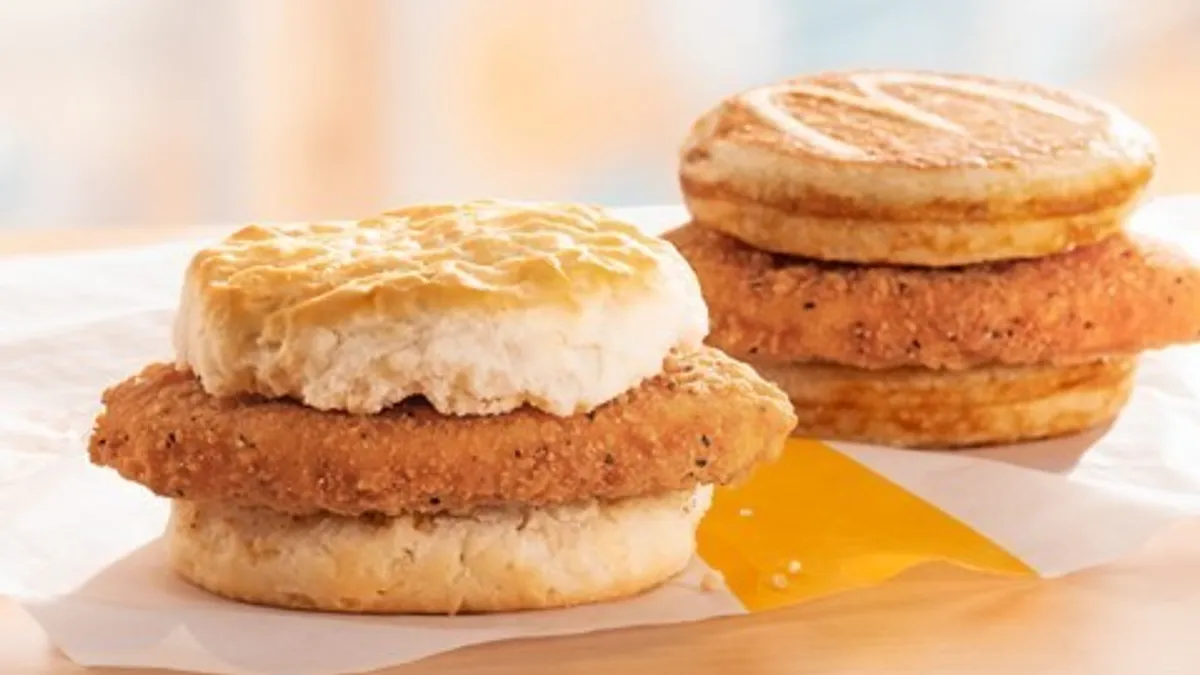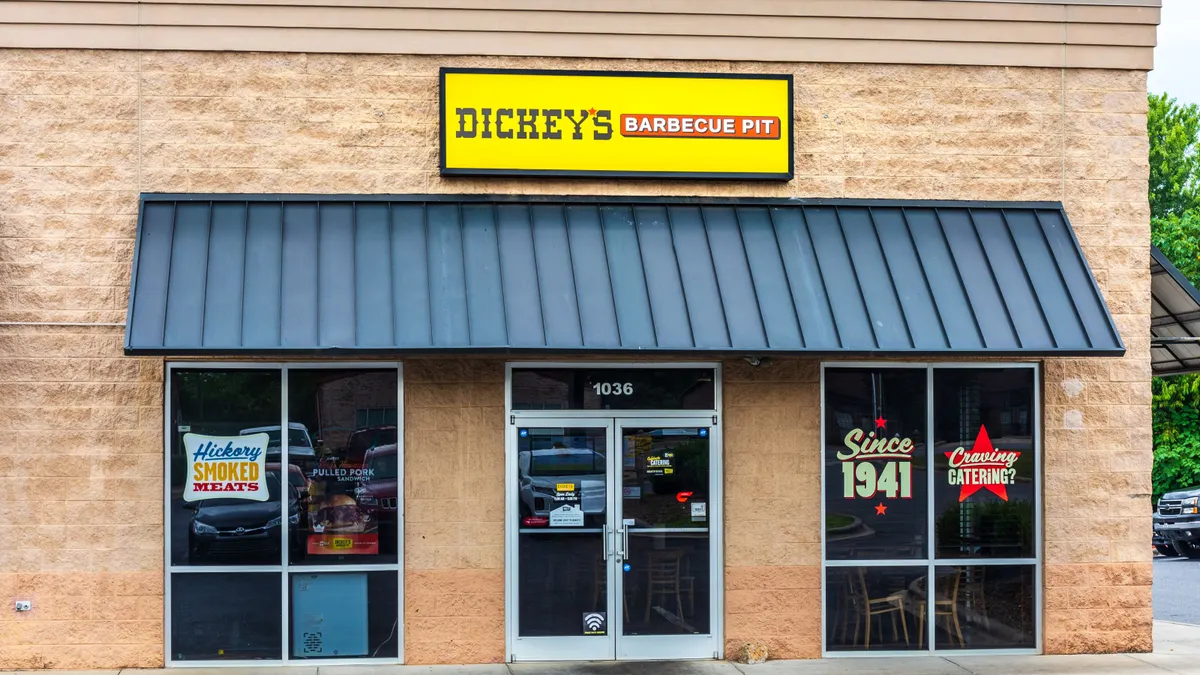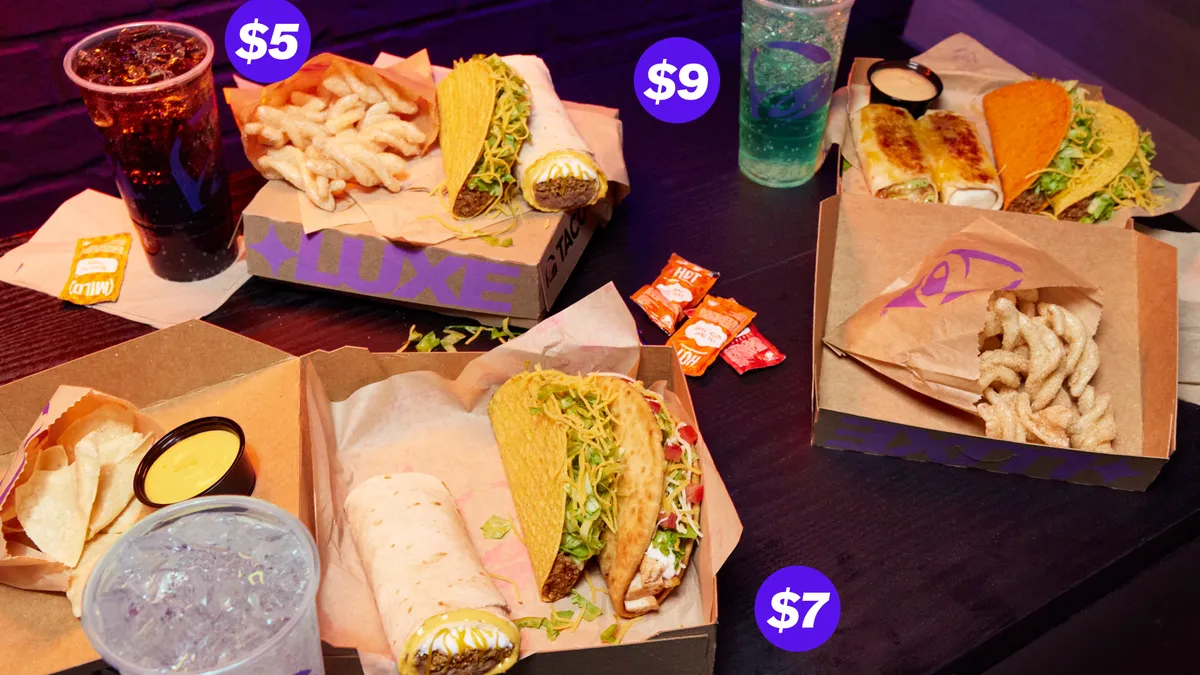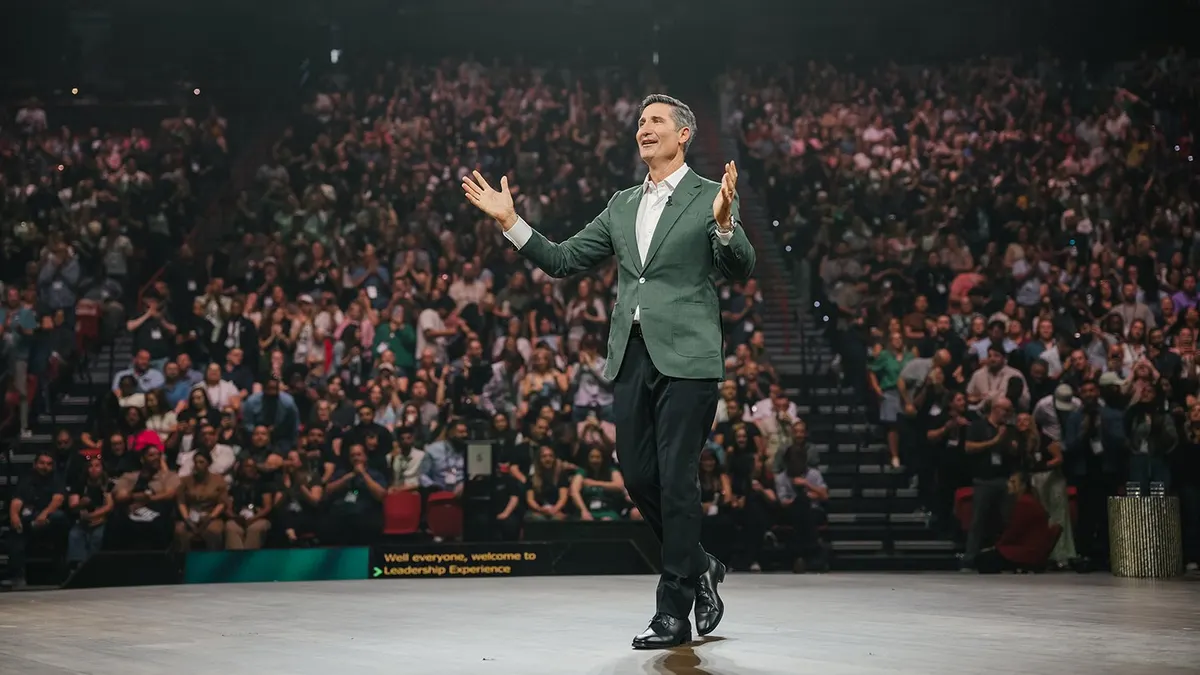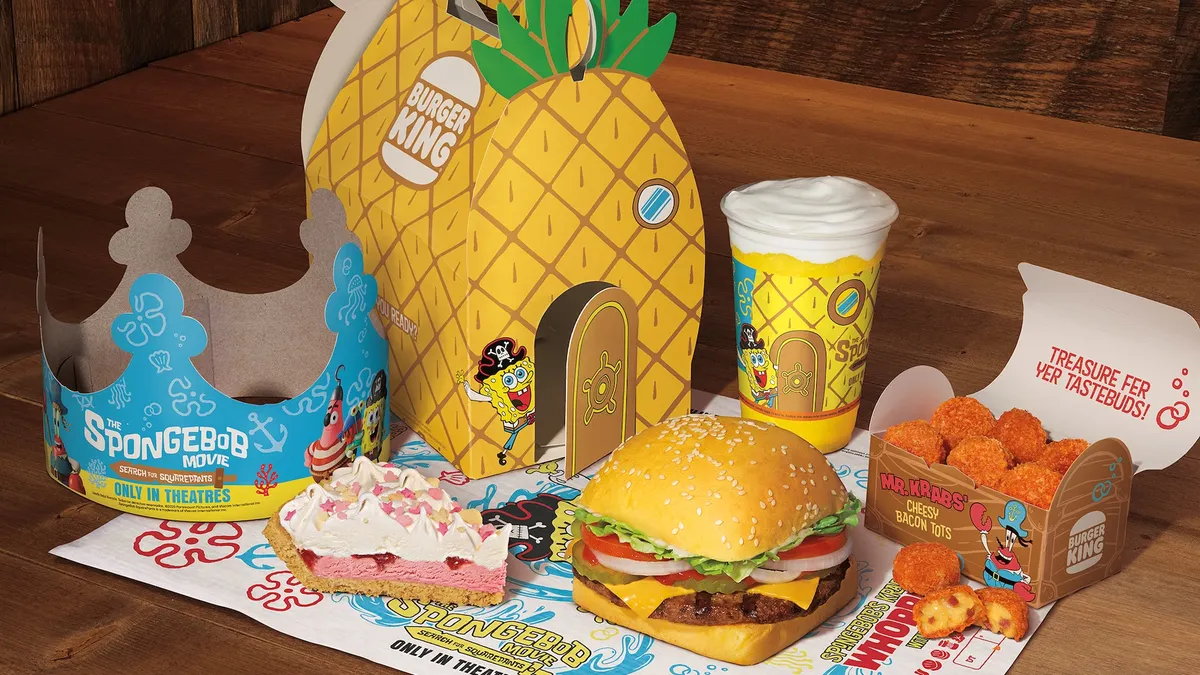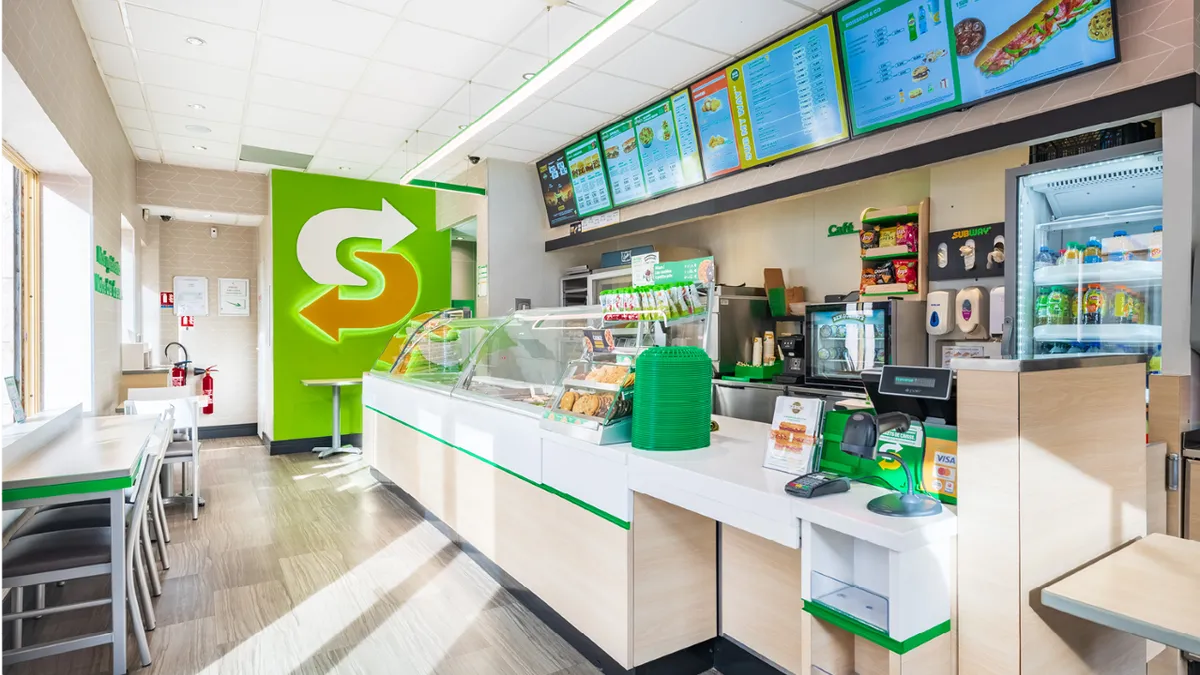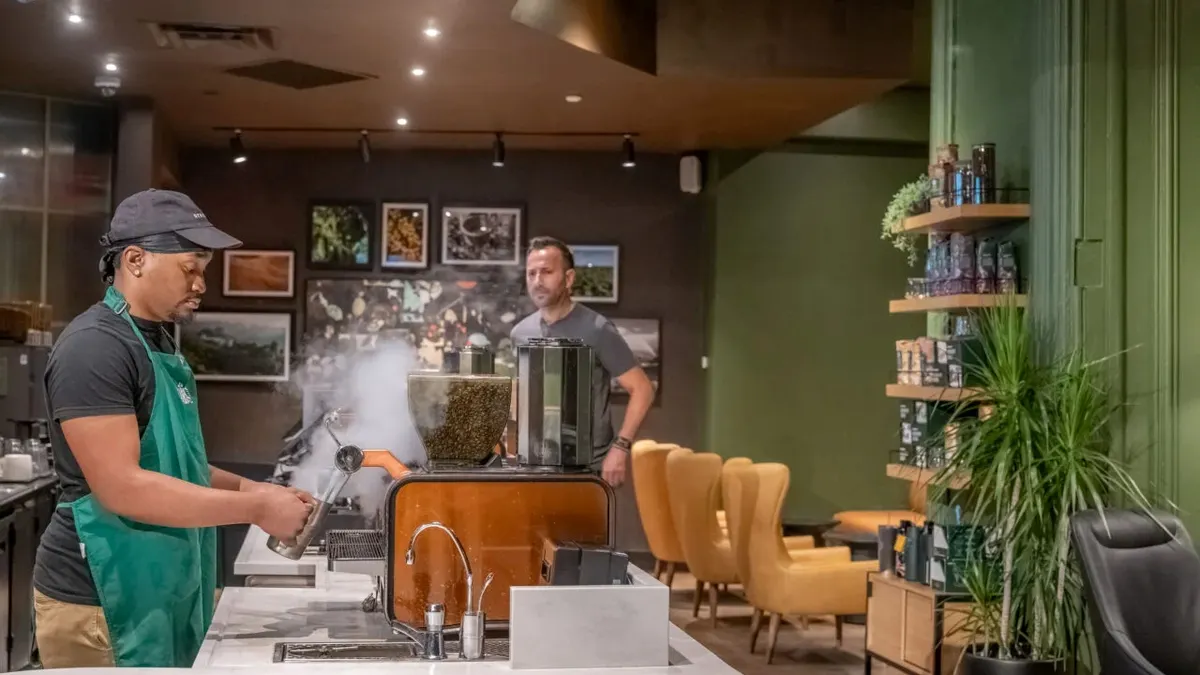The breakfast wars of 2020 reached a stalemate this spring as the novel coronavirus pandemic took hold of the restaurant industry. COVID-19 quashed the theory that breakfast would be the only growing daypart of the restaurant industry this year — it’s instead become a drag for many QSRs.
Pre-COVID-19, historically low unemployment created more on-the-go commuters who were increasingly seeking out affordable breakfasts to accommodate their busy lifestyles. Breakfast and the morning snack category grew 5% during the last five years, and QSR chains like Wendy’s, Dunkin’, Burger King and McDonald’s were all clamoring to get a slice of the segment.
But when COVID-19 hit, breakfast was the easiest meal to convert back to home and suffered the steepest transaction declines, The NPD Group said in an email sent to Restaurant Dive.
Among chain restaurants, the daypart declined by 18% during the week ending June 7 compared to the same period last year. Comparatively, lunch transactions were down 11% while dinner transactions were down 12% during the week ending June 7 compared to a year ago.
“Breakfast is a habitual daypart. Once you disrupt that routine, it takes time to sort of rebuild it,” Chris Kempczinski, McDonald’s CEO, said during Evercore ISI’s Virtual Consumer & Retail Summit webcast on Tuesday.
McDonald’s and Taco Bell have reported declining comp sales over the last three months due to poor breakfast performance, which is unlikely to change since many office workers will likely work from home for the foreseeable future. And Wendy’s had to shift its breakfast plans just weeks after its March launch.
McDonald’s had just started to pursue improving its breakfast daypart with the January debut of its Chicken McGriddle and McChicken Biscuit to better compete with Chick-fil-A’s breakfast. But unlike other chains, McDonald’s breakfast daypart had been struggling for years as the company lost focus on its most profitable meal time. Executives suggested the chain’s all-day breakfast offering could have detracted from morning traffic.
On the other hand, McDonald’s was uniquely prepared for the impact. It already had a sense of the impact closures would have on breakfast after seeing declines when the chain’s stores were closed during Experience of the Future remodels, Kempczinski said.
As shelter-in-place orders spread, the chain decreased its breakfast marketing since it was getting low returns on investment. The company also temporarily pulled its all-day breakfast menu in March and limited offerings to popular items to streamline operations.
“We knew there weren’t going to be many people out there looking to get breakfast,” Kempczinski said.
And McDonald’s results reflect that. Breakfast made up over half of the chain’s current comp sales decline, while lunch and dinner has been relatively flat, McDonald’s CFO Kevin Ozan said during the webcast.
Taco Bell also had high hopes for breakfast, rolling out a new Toasted Breakfast Burrito menu just days before dining rooms started to close across the country. At Taco Bell, declining breakfast and late-night sales led to a high single digit decline in same-store sales quarter-to- date. In April, Taco Bell restaurants had the option to pause breakfast and just work hours that would be appropriate to optimize the business model, David Gibbs, Yum Brands CEO, said during an April earnings call with investors. Unlike Yum Brands’ KFC and Pizza Hut, which don’t have breakfast, Taco Bell has been impacted the most because of the lack of commuters, he said.
Although Wendy’s had a strong start to its March breakfast launch, which generated a 15% increase in sales during the first week of the month, it pulled back on its marketing fund contributions to the daypart for the rest of the year to provide relief to franchisees, Todd Penegor, Wendy’s president and CEO, said during a May earnings call with investors.
The company also found creative labor models to reduce staffing during the daypart, which resulted in a reduction of the breakfast breakeven point of 35%, Wendy’s CFO Gunther Plosch said during the call.
But even with the drag from coronavirus, Wendy’s breakfast performed well in May and made up about 8% of U.S. systemwide sales, according to a press release.
What likely helped was its social media and TV marketing efforts before the pandemic, which increased customer awareness by 50% for the daypart, Penegor said. The chain also isn’t planning to lose focus on breakfast and will continue to apply media pressure, which is also helping lunch and dinner dayparts, he said.
“While the environment we encountered as we started breakfast was not what anyone would have expected, the strength of our program makes this daypart a key bright spot for us. It has performed well despite significant headwinds,” Penegor said.
The strength of Wendy’s breakfast daypart shows that recovery for the daypart could be within reach. And Burger King is already attempting to reinvigorate diner interest. The company rolled out its Impossible Croissan’wich nationwide this week and is planning to give away 100,000 sandwiches through its app.
“Breakfast continues to be an area where we think we have a lot of room to grow, and we've got a really strong base of consumers that already know the brand and love the brand for breakfast,” Jose Cil, CEO of Restaurant Brands International, said during a May earnings call with investors.
McDonald’s is also starting to reinvest in breakfast, but numbers are still down industrywide, so the strategy to ramp things back up will be different, Kempczinski said. Interest in breakfast is expected to vary market by market and instead of doing a national push, the chain will take a regional basis depending on how people return back to their normal patterns, he said.
As it returns its focus on this daypart, it also could move forward with plans for baked goods in the morning, but conversations are ongoing, he said.
“We know a lot of people are interested in going after the breakfast business and as we said previously we intend to defend [it],” Kempczinski said. “It’s just making sure we're doing it in a prudent way. … We need to have customers out there looking for breakfast.”



